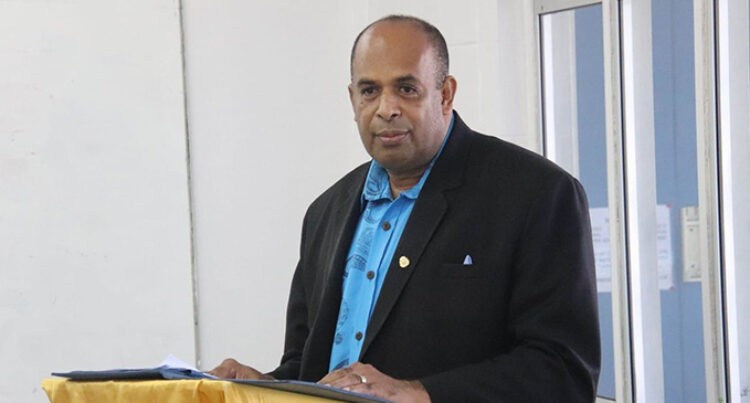Fiji’s Assistant Commissioner of Police for Investigations and Crime, ACP Sakeo Raikaci says illicit drug trafficking has become a major challenge for Fiji – drawing national security.
ACP Raikaci said the drug trade in Fiji is driven by our strategic location in the Pacific, poverty and corruption.
Speaking at the Fiji National Drug Rehabilitation Workshop, ACP Raikaci said Fiji serves as a transit point for drug trafficking organisations that transport drugs from the Asian region to Australia and New Zealand, who are key international markets for illicit drugs.
“The illicit drug trade in Fiji has also been fuelled by the country’s growing addiction problem, which has led to an increase in drug-related crime and violence.”
The Assistant Commissioner of Police said the Ministry of Home Affairs will now present a National Counter Illicit Narcotic Strategy (2023-2028) to Cabinet in July for consideration.
This is done in consultations with relevant agencies after noting that the illicit drug trafficking business, having, evolved dramatically over the years.
The five-year strategy is to protect the health, safety and security of people who live in Fiji, promote development, to prevent and reduce economic drug-related harm in Fiji.
Raikaci said Fiji has experienced a range of security challenges that have threatened Fiji’s stability and economic prosperity.
Raikaci said these events have serious economic, social and political consequences for Fiji, creating an environment that is conducive to criminal activity, including drug trafficking – these challenges have been exacerbated by the growing illicit drug business in the country.
“The Government is committed to harm minimisation; the balanced approach adopted in the policy paper is to guide its actions on demand reduction, supply reduction and harm reduction adopted from the UNDOC framework,” he said.
Raikaci said Fiji’s legislations need to be strengthened, to protect its borders from the illegal drug-trade.
He said the Fiji Police Force is working closely with the Fiji Navy, the Fiji Revenue and Customs Service and the Department of Immigration to better protect our borders and entry points.
Speaking to FijiLive, ACP Raikaci, however said that more needs to be done, particularly in and around our maritime zones – these areas in our maritime zones are being used as drop off zones.
“We need to cut these lines off, as this provides passage in and out of Fiji. Police also needs to work with the Fiji Navy and address this loophole used by criminals to widen their drug business.”
The Acting Commissioner of Police highlighted that hard-drugs like cocaine and methamphetamine are coming in to Fiji through its maritime zones.
ACP Raikaci said close to 20 cases have been recorded by the Narcotics Unit from January to June.
He said Fiji serves as a transit point for drug trafficking organisations that transport drugs from the Asian region to Australia and New Zealand, who are key international markets for illicit drugs.
SOURCE: FIJI LIVE/PACNEWS














